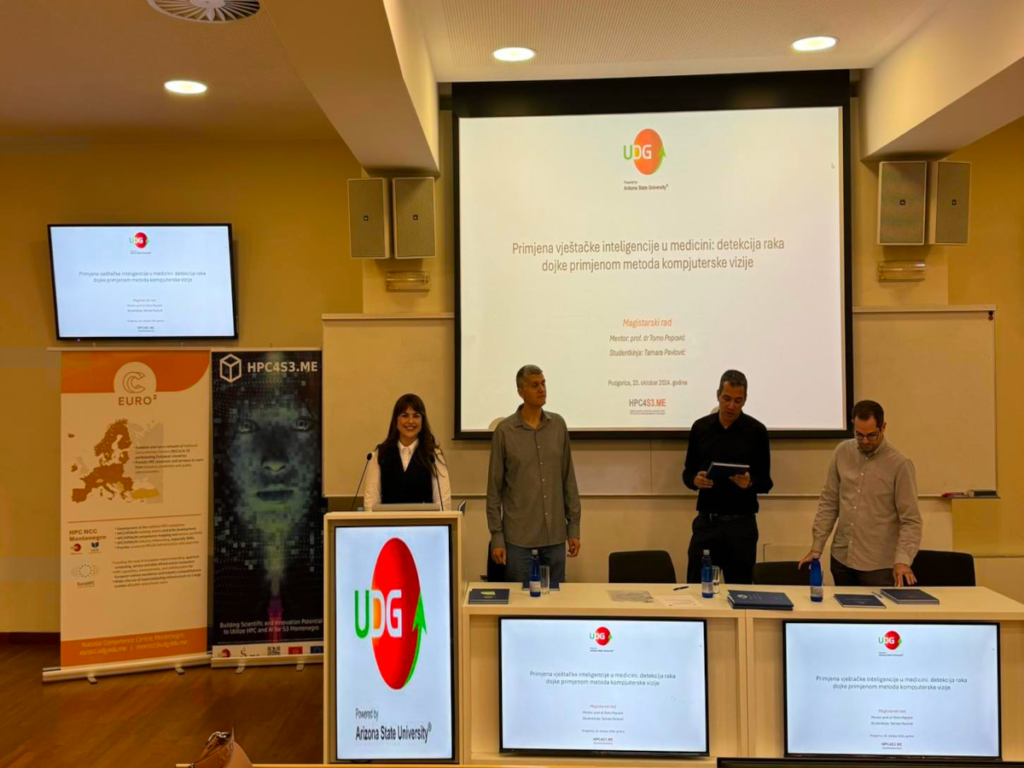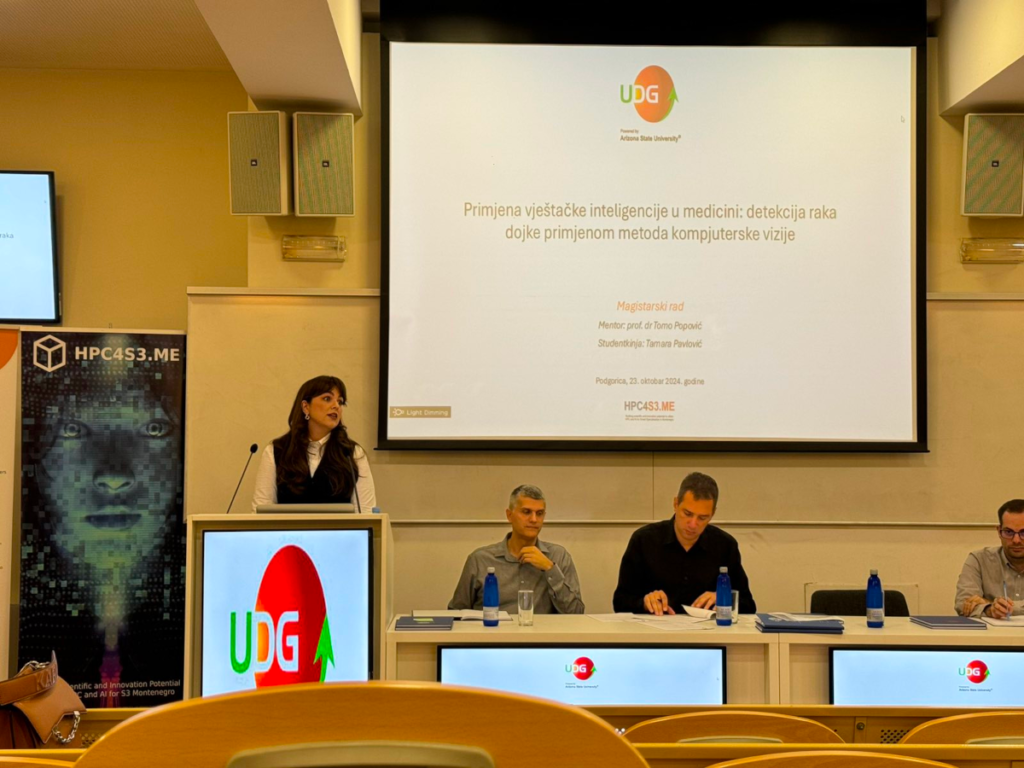NCC Montenegro team wishes you Happy New 2025 Year!

NCC Montenegro team wishes you Happy New 2025 Year!

The University of Donja Gorica hosted the highly anticipated HPC/AI Workshop and Student Conference on Saturday, December 21st. This event served as a key platform to highlight the outcomes of the HPC4S3ME IPA project and the AIFusion training program supported by the Innovation Fund of Montenegro. Both projects were developed within the framework of EuroCC2/EuroCC4SEE, with support from the NCC Montenegro team. The events showcased significant advancements in high-performance computing (HPC) and artificial intelligence (AI) in Montenegro.
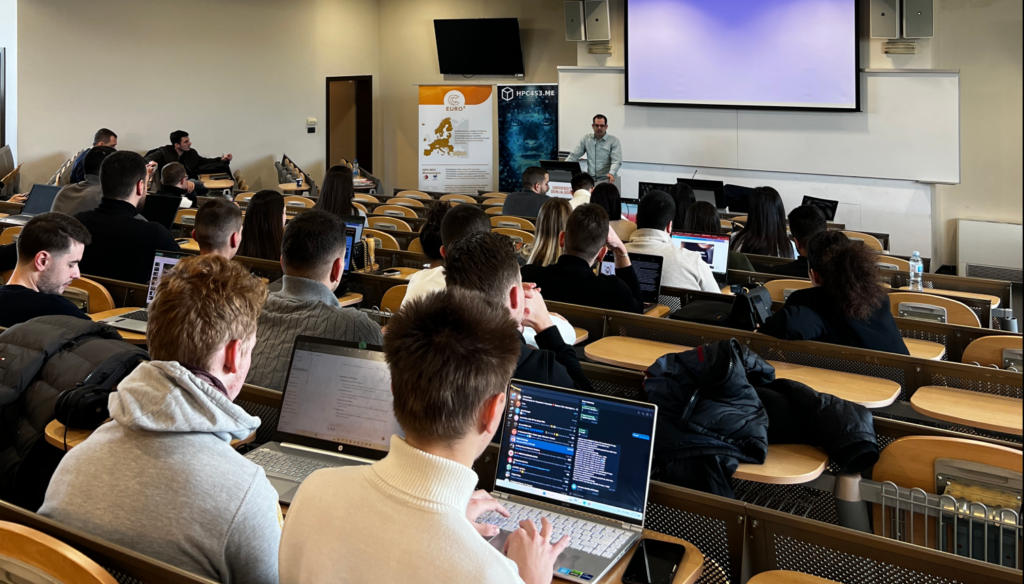
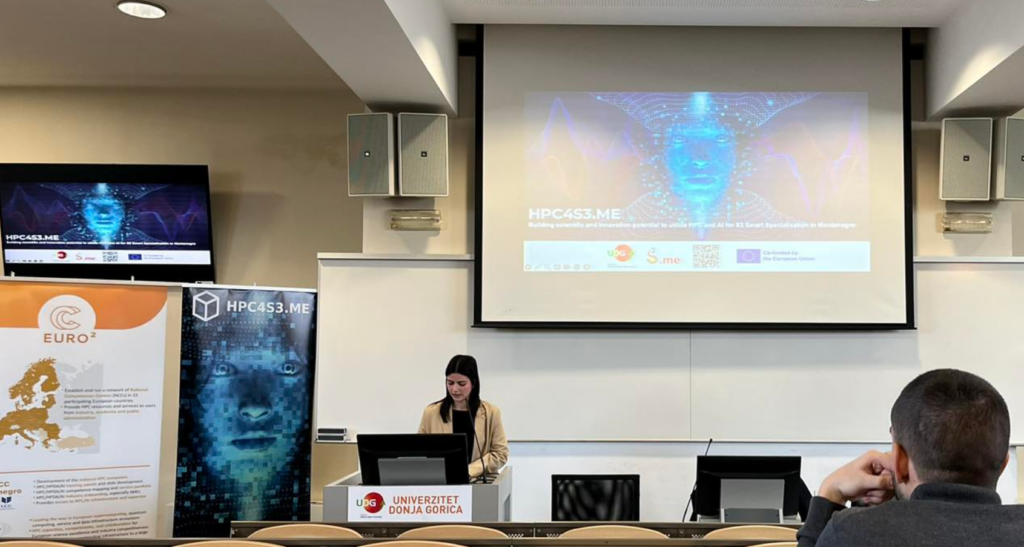
The workshop commenced with presentations on the results and achievements of the HPC4S3ME and AIFusion projects. Participants were also introduced to the activities and contributions of NCC Montenegro and the broader EuroCC2/EuroCC4SEE initiatives. These sessions underscored the critical role of collaboration and innovation in advancing HPC and AI capabilities.
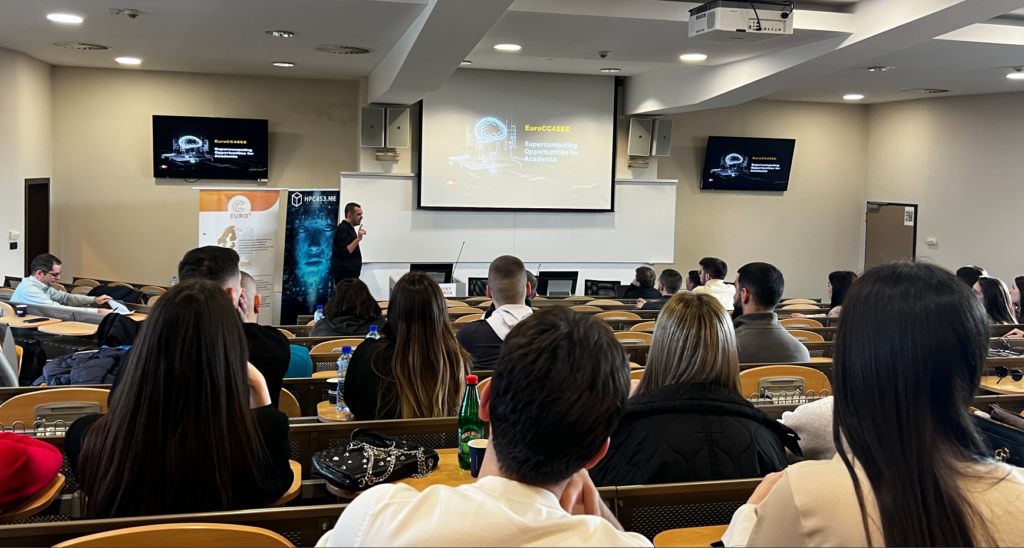
A highlight of the event was the student conference, which featured 19 project presentations by student teams, primarily from MSc and BSc programs. These projects demonstrated the creativity, technical acumen, and forward-thinking approaches of the next generation of researchers and innovators. The diversity of ideas presented reflected the growing interest and expertise in leveraging HPC and AI for real-world applications. The project discussed HPC and AI applications in digital transformation of education, medicine, fashion, mathematcis, and tourism.
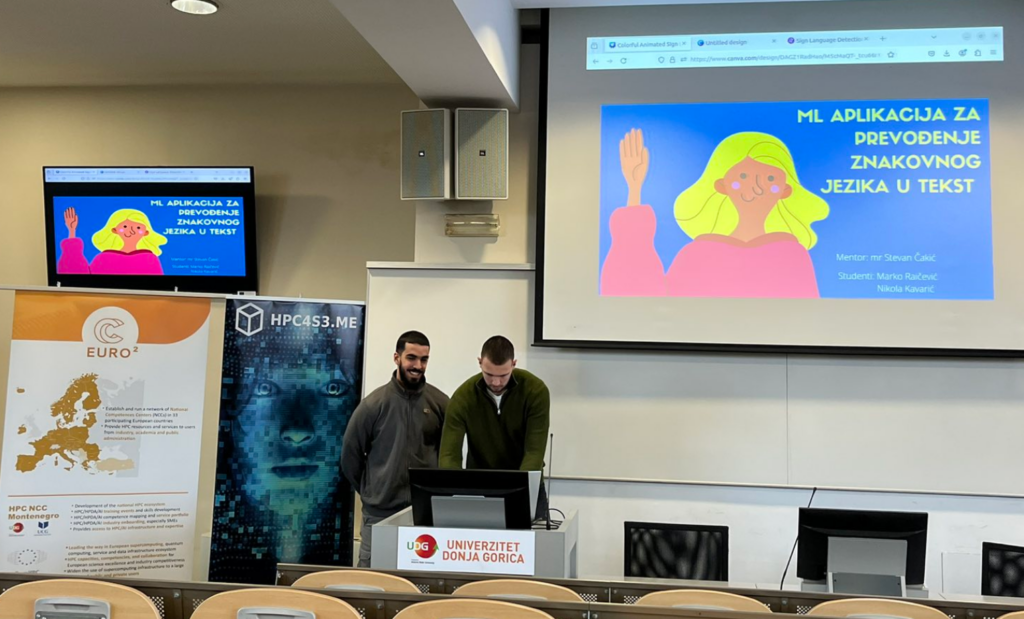
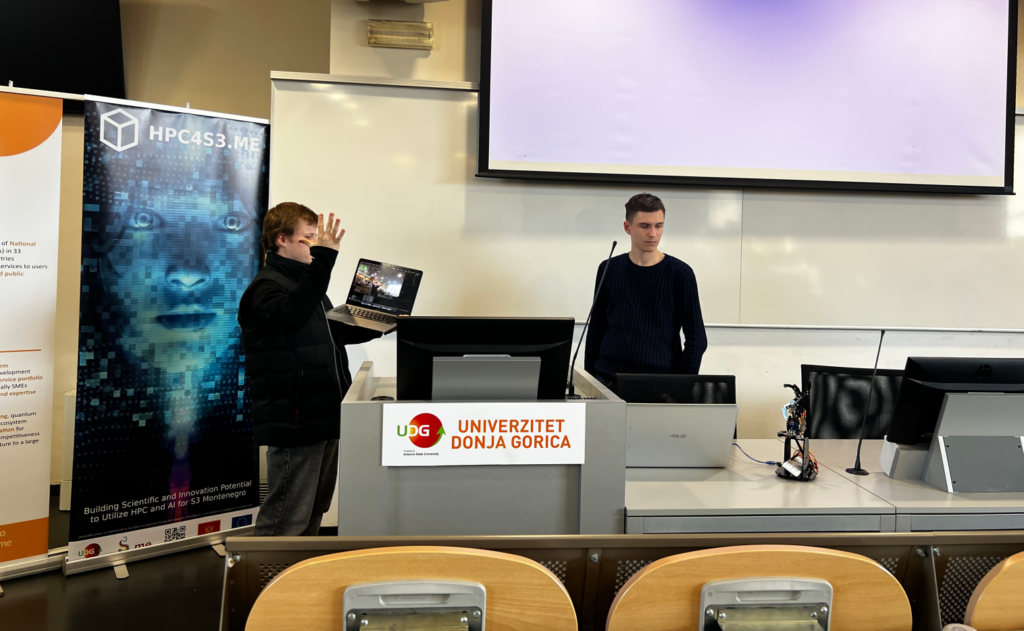
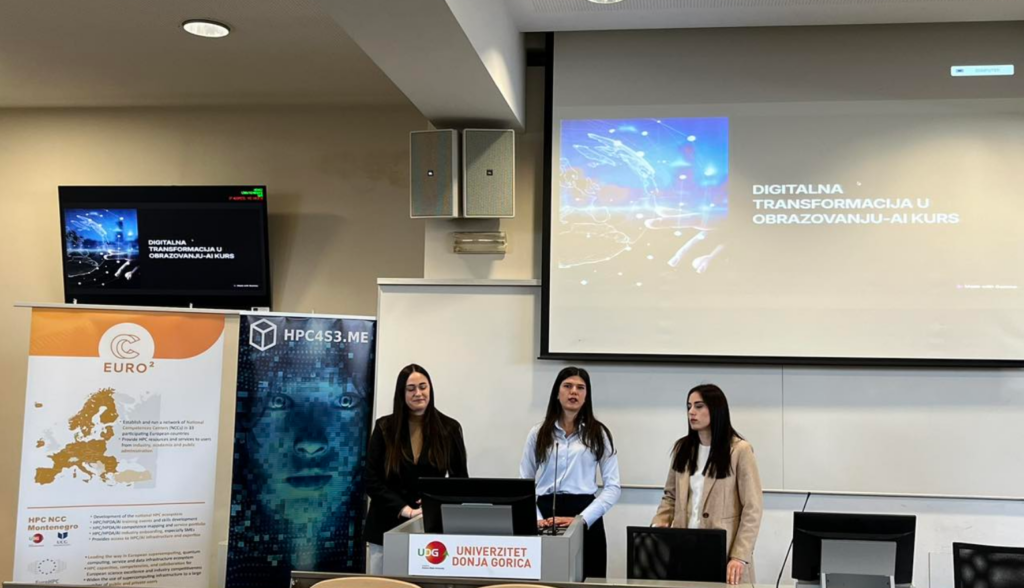
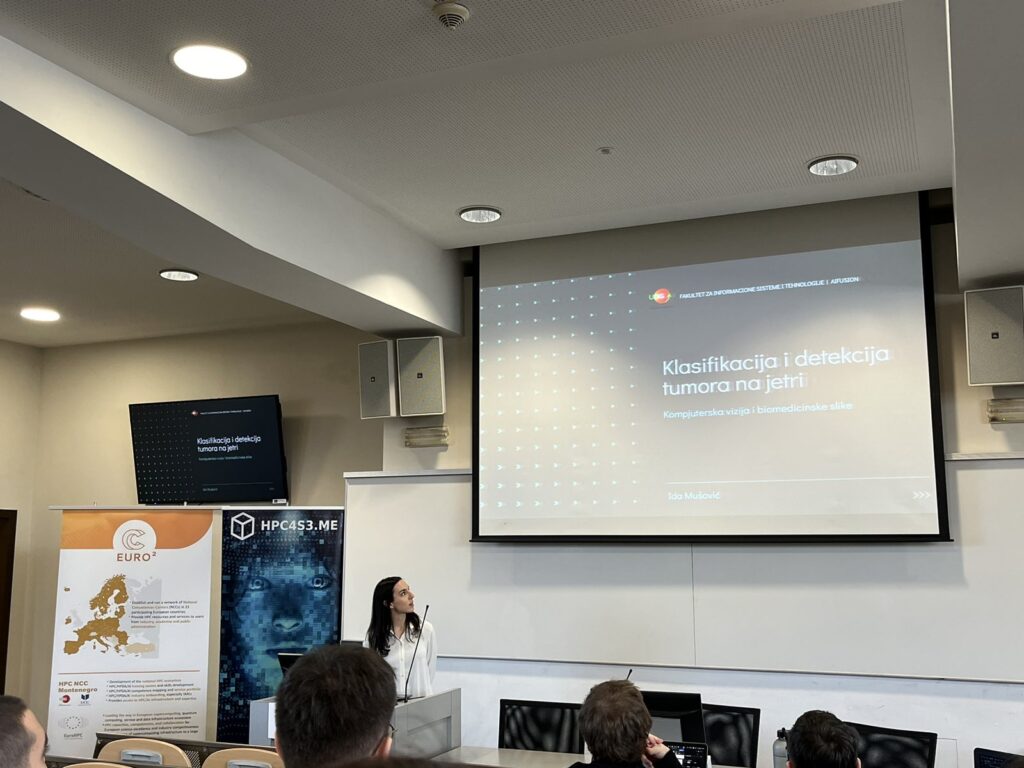
The day concluded with a dynamic panel discussion focusing on the potential of HPC and AI, emphasizing the importance of training, skills development, and success stories from academia and industry. Experts and participants engaged in vibrant discussions, exchanging insights and exploring the future possibilities of these transformative technologies.
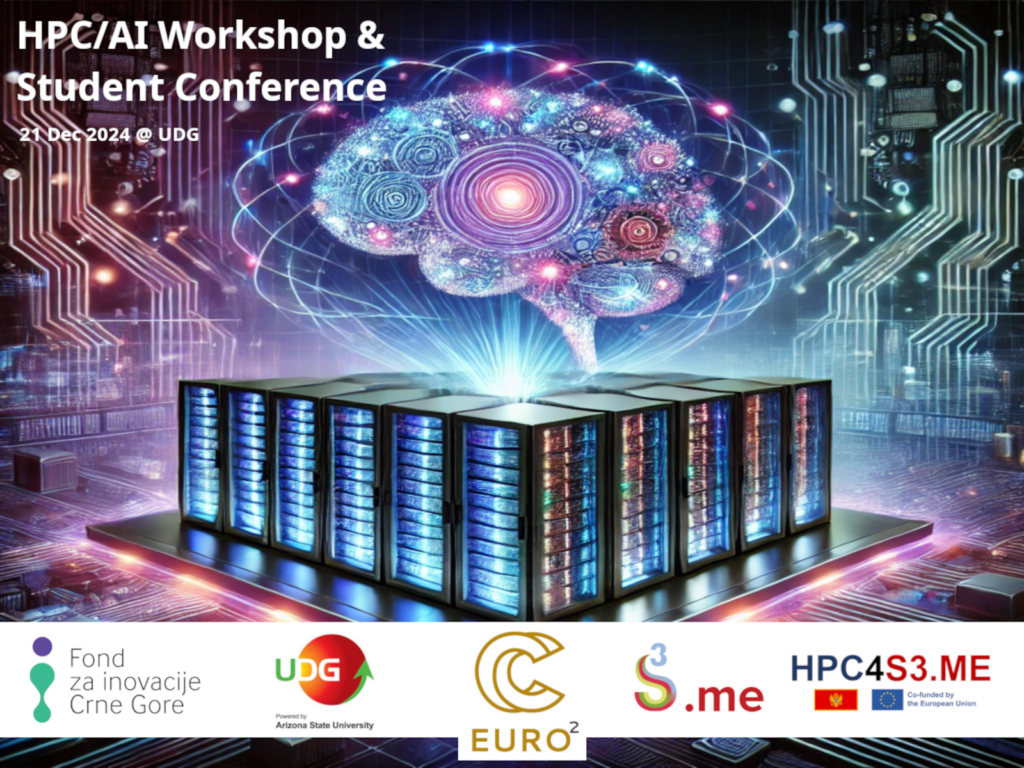
With over 50 attendees, the event fostered a collaborative and engaging atmosphere, encouraging knowledge sharing and networking. The conference provided participants with an inspiring experience, leaving them motivated to explore further advancements in HPC and AI.
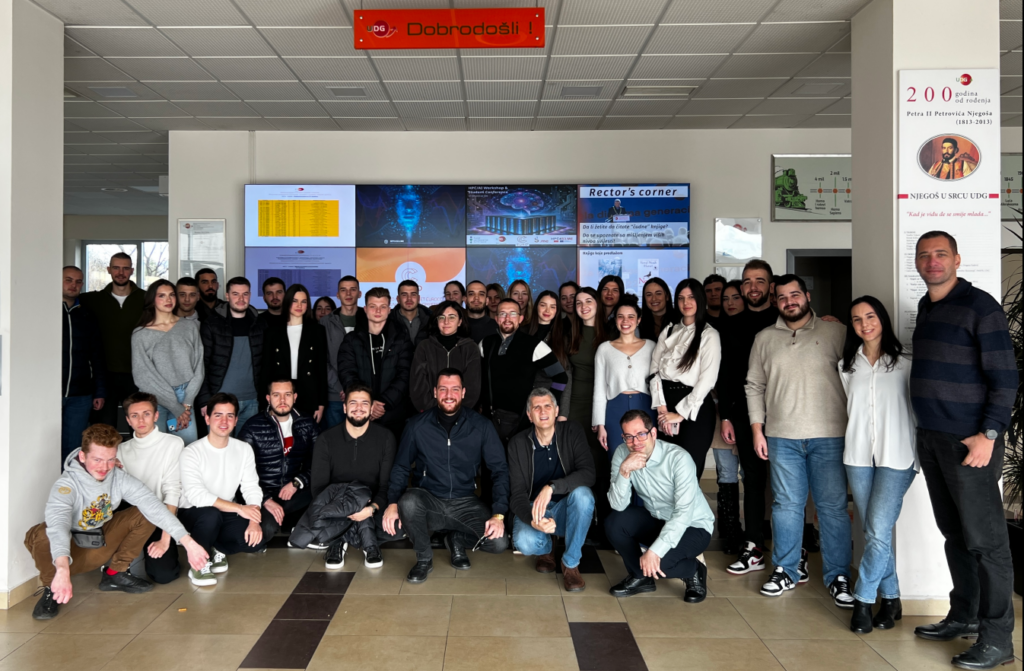
The event concluded on a high note with a cocktail reception, offering attendees the opportunity to network in an informal setting. This gathering reaffirmed the University of Donja Gorica’s commitment to fostering innovation and excellence in HPC and AI, further establishing its role as a regional leader in these critical domains.
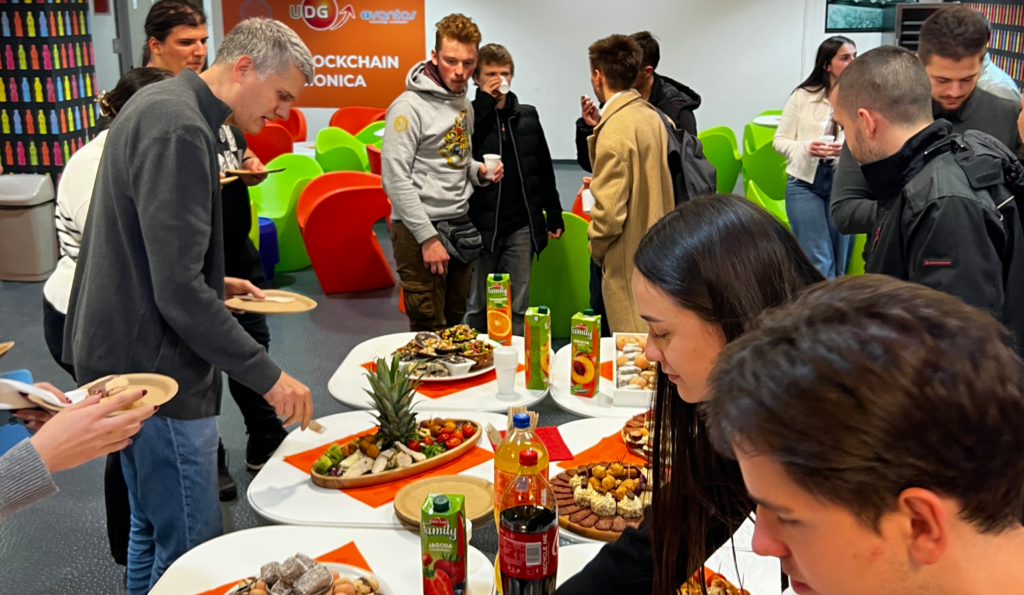
The Book of abastracts can be accessed by clicking on the image below (link).


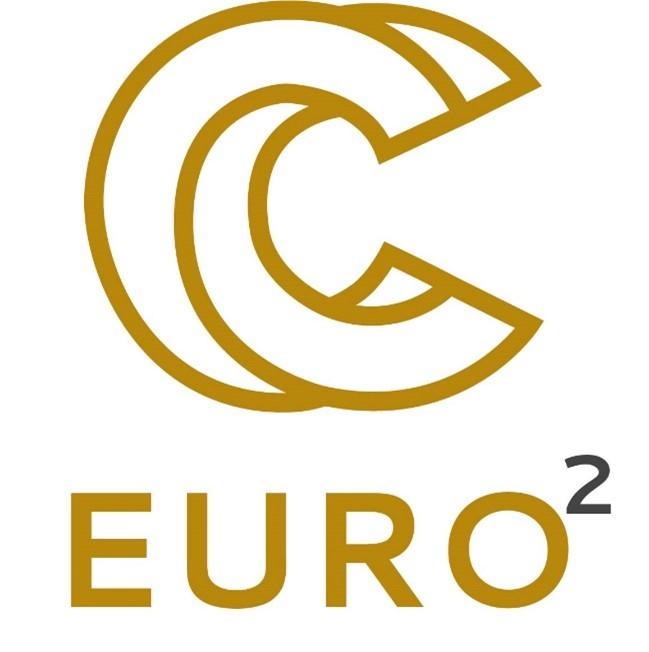
On Saturday, December 21st, the University of Donja Gorica will host an HPC/AI Workshop and Student Conference, where participants from the AIFusion and HPC4S3ME projects will present their results.

The event will include:
Location: AP Amphitheatre, University of Donja Gorica
Time: 10:00am – 16:00pm
The full agenda:
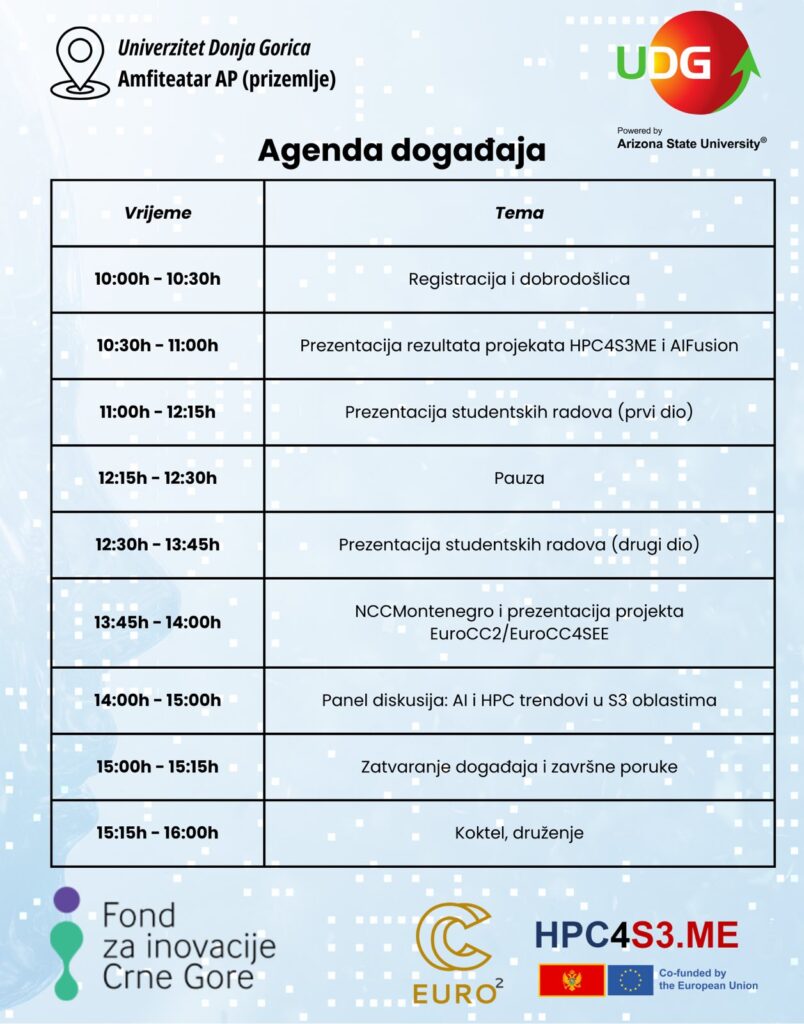
After the program, the socializing will continue with a cocktail.
Join us to celebrate the results and exchange ideas in the field of HPC and AI
The EuroCC2 project team from UoM (Enis Kočan and Božo Krstajić), as part of service activities and interaction with the industry, held a meeting with the management and employees from the top technical leadership of the FiveG group and the NeurobotX company, which specializes in application of AI and VR in the gaming industry and the development of simulation nautical models for training purposes (Ivan Šoć, CEO of the FiveG group; Aleksa Čović, NeurobotX and Marko Šćepanović NeurobotX), on November 11, 2024, at their premises.
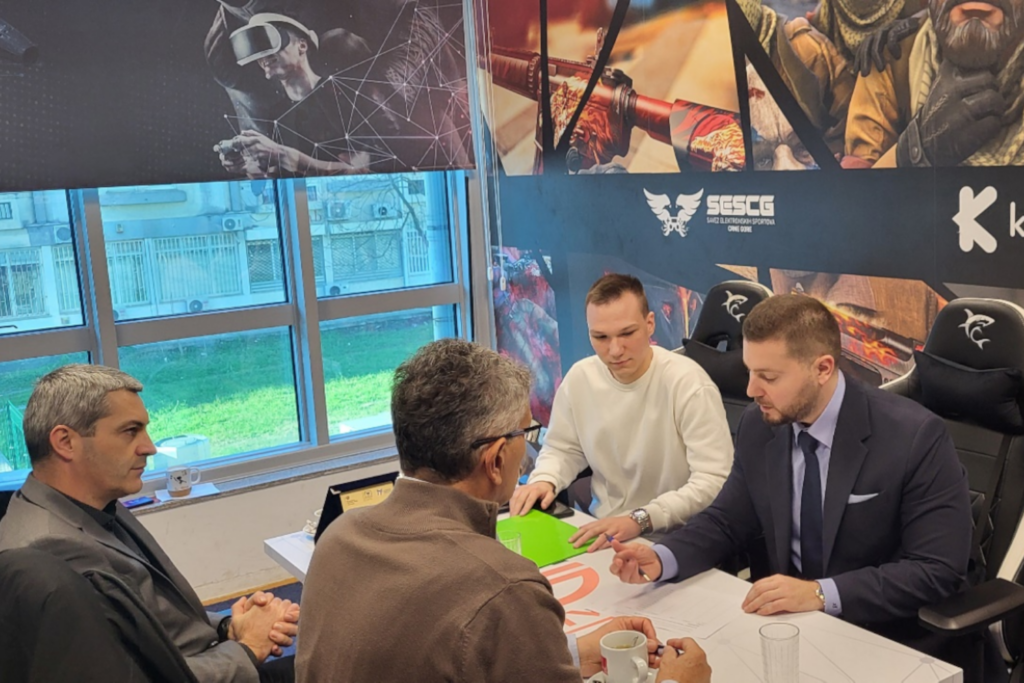
After the presentation of the services that the NCC of Montenegro can provide to companies within the EuroCC2 project, the current projects of the FiveG company were jointly analyzed, from the aspect of their potential implementation on HPC resources. Following a comprehensive analysis, at least 2 projects were identified that would benefit significantly from being executed on HPC resources. Consequently, we agreed on future collaboration activities aimed at preparing these identified projects for implementation in an HPC environment and their participation in the upcoming conference, which will feature a special event for companies interested in utilizing HPC resources through HPC NCC Montenegro.
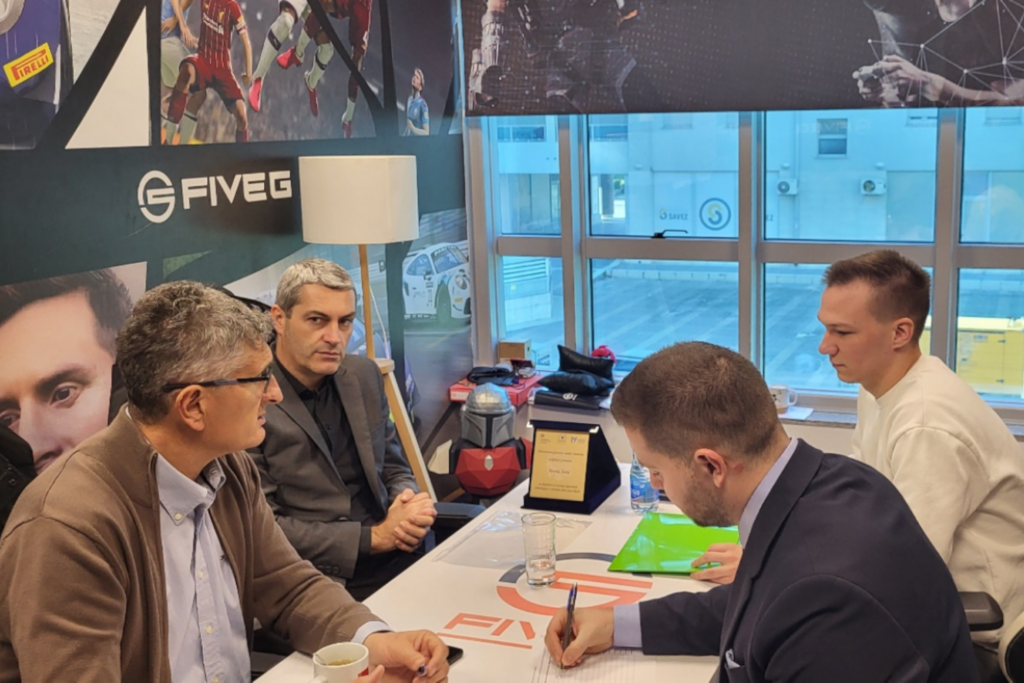
Course Description: Prompt Engineering
During the Fall 2024, the NCC team at UDG developed a new training offering aimed at the the use of generative AI, mos specifically at real-life LLM applications and digital transformation. The training was developed based on the communications with students and industry representatives. The initial enrollment in November was over 40 students, where most of them are expected to finish the training by 20 December.
The study of Prompt Engineering represents a cornerstone technique for effective interaction with advanced language models such as GPT-4, LLama and beyond. This course equips students with the knowledge and skills necessary to harness the transformative potential of AI technologies, emphasizing innovative, responsible, and industry-specific applications. In an era of digital transformation, where real-time decision-making and intelligent automation shape industries, the demand for high-performance computing (HPC) is critical. By exploring advanced natural language processing (NLP) models, students will not only develop effective querying techniques but also understand the computational requirements and infrastructure needed to implement these solutions at scale.
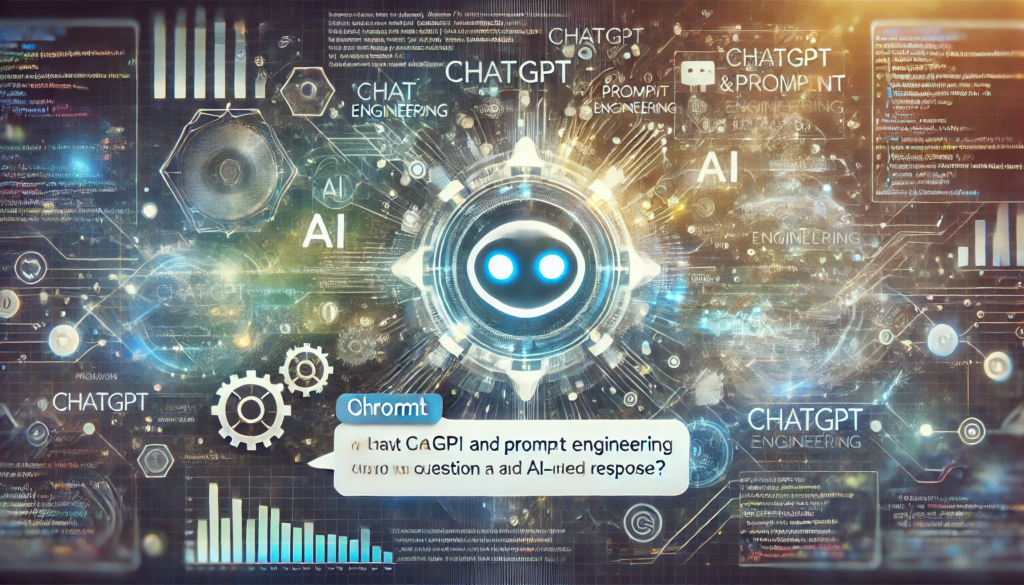
As large language models become more sophisticated, their computational demands grow exponentially. Applications such as real-time customer interactions, predictive analytics, and decision support in fields like healthcare and education require HPC infrastructure to ensure performance and scalability. This course bridges the gap between theoretical understanding and practical implementation, highlighting how HPC enables the deployment of robust AI solutions, thus driving innovation in the digital age. Whether you’re preparing to lead AI projects in academia or industry, this course provides the essential knowledge to leverage AI technologies responsibly and effectively, positioning you at the forefront of digital transformation.
Course Content Overview (12 Modules)
Learning Outcomes
By the end of this course, students will be able to:
As planned, the invited lecture “Risk Management of Future Large-Scale Electrification” by prof. Mladen Kezunovic took place on 25 October 2024 in Enterpreneurial nest at UDG. Threre was over 60 attendees including students, academics from Montenegrin universities and representatives from the industry. This workshop was organized in the context of HPC4S3ME project and supported by EUROCC NCC Montenegro team.
What are the risks? Methodology for risk management and mitigation? What data do we have and how do we manage all that data? How can AI/ML supported by HPC help?
Dr. Mladen Kezunovic is a University Distinguished Professor at Texas A&M with over 35 years of expertise in power engineering. Renowned globally, Dr. Kezunovic has authored over 600 papers and consulted for 50+ companies worldwide. His extensive research and industry contributions, notably in fault modeling, data analytics, and smart grids, have earned him IEEE Life Fellow status and recognition from the US National Academy of Engineering.
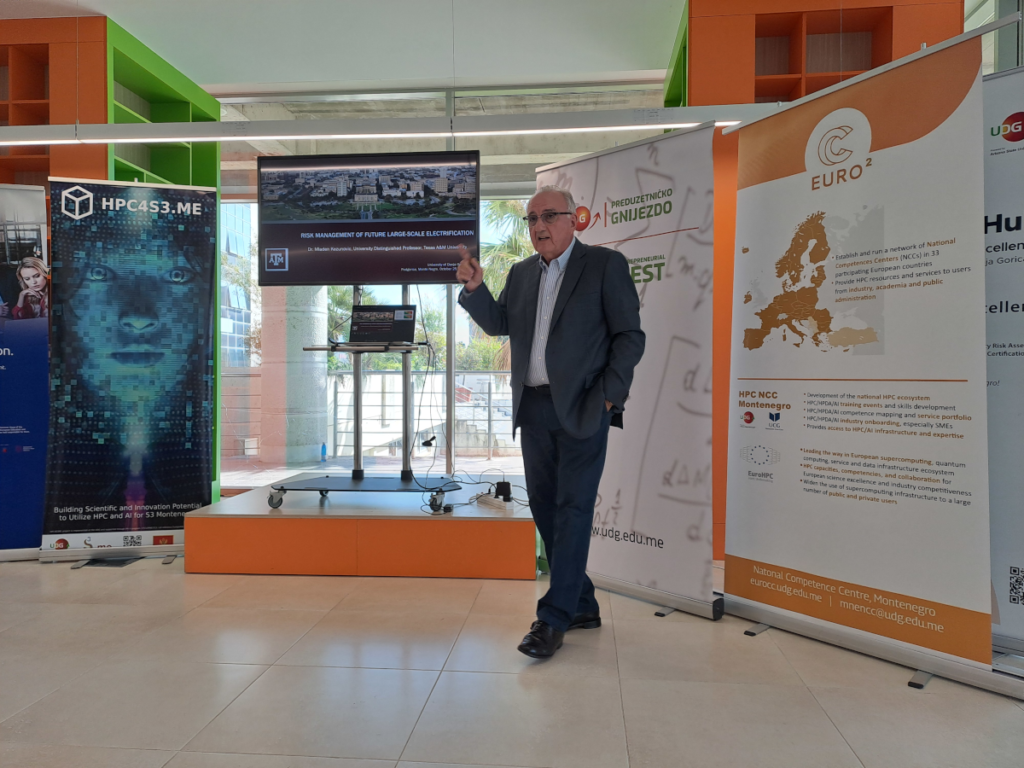
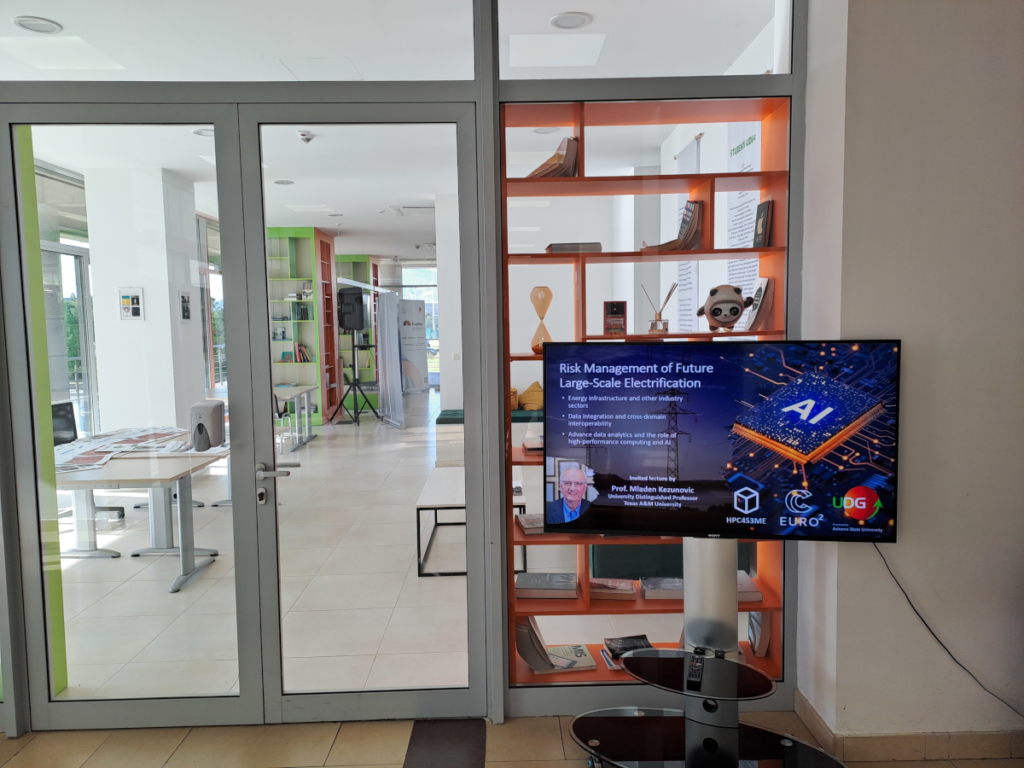
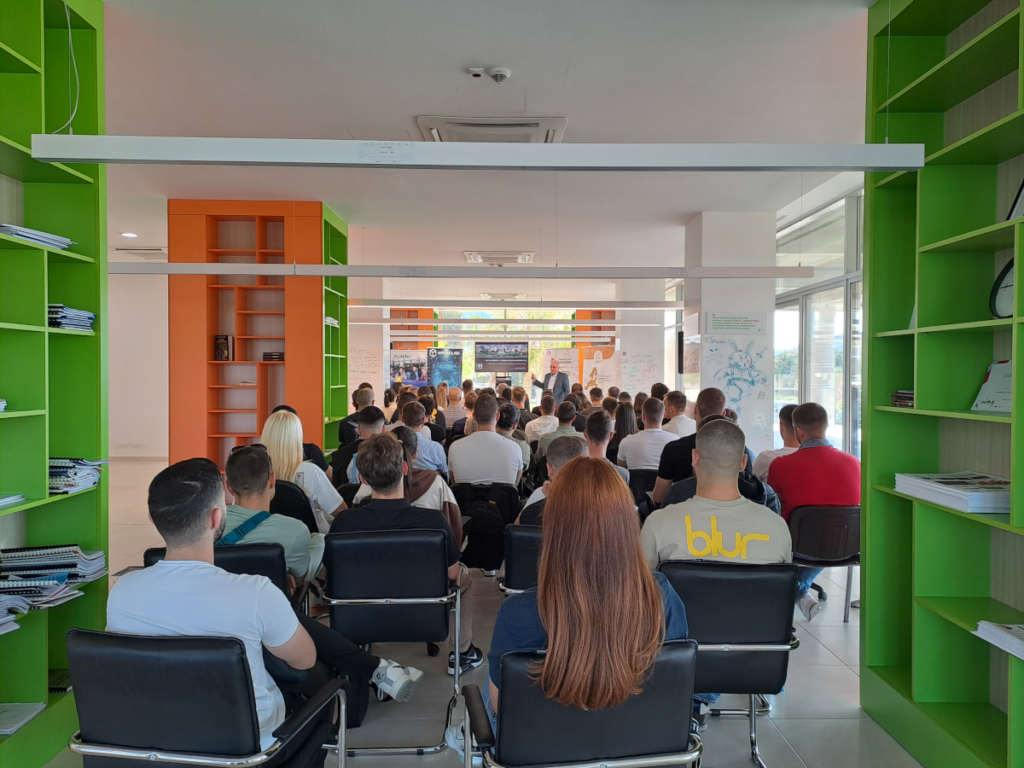

Ms. Tamara Pavlovic defended her MSc thesis on the use of HPC/AI for creating prediction models for breast cancer detection on 23.10.2024. With the support from NCC Montenegro, Ms Pavlovic did her research in the context of the HPC4S3ME project and the focus was on AI and computer vision applications in medicine. From the motivational point of view, we congratulate Tamara for finalizing and defending her thesis during the Breast Cancer Awareness Month (‘Pink October’) as people around the world adopt the pink colour and display a pink ribbon to raise awareness about breast health.
ABSTRACT – Artificial Intelligence (AI) is revolutionizing numerous sectors, including medicine, by offering innovative methods for diagnosing, treating, and researching diseases. This master’s thesis focuses on the application of AI in the diagnosis of breast cancer, using computer vision algorithms to analyze mammographic images. Through a combination of convolutional neural networks (CNNs) and deep learning, models have been developed that identify malignant changes, potentially contributing to earlier and more precise disease detection. The thesis examines in detail how AI can improve the efficiency of screening processes, reduce the time required for diagnosis, and enable a more personalized approach to treatment. In addition to technological progress, ethical issues such as patient safety and the transparency of AI systems are also considered. The results of this study confirm that the application of AI in breast cancer diagnostics can significantly enhance medical procedures. The models tested, ResNet152 and DenseNet121, demonstrated quite good performance in classifying breast cancer. Their AUC scores, which exceed the threshold of 0.9, indicate their potential for use in clinical practice. These findings not only contribute to the improvement of diagnostic processes but also open up opportunities for further research and development of AI technologies in medicine.
